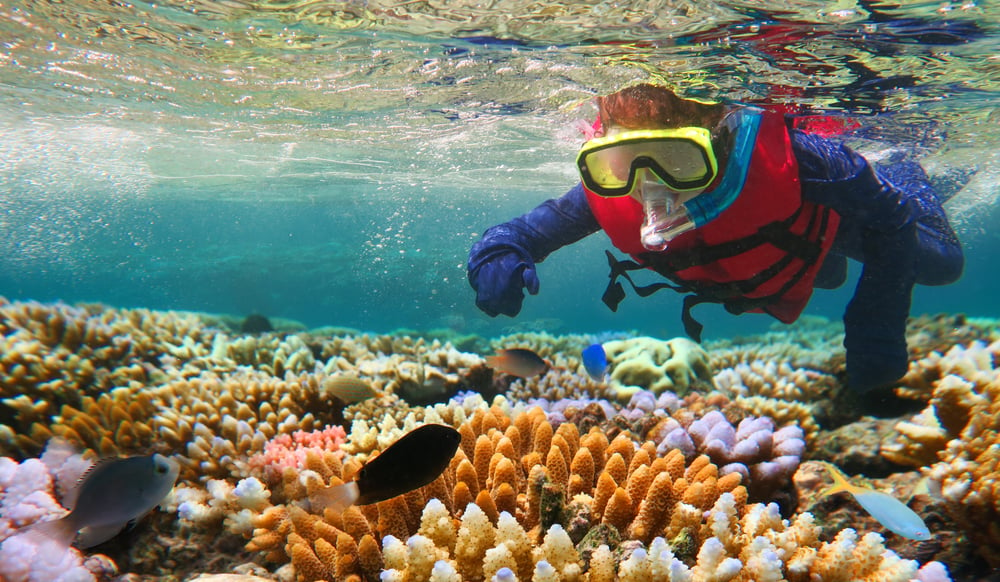Climate change has impacted the environment in many disastrous ways. One of the worst impacted areas has been coral reefs. Coral reefs are extremely sensitive and many are dying to due to the impact of climate change and pollution. Now researchers have a new plan in place that will help combat climate change and may be the key to saving the reefs.
Coral reefs are hugely popular among tourists. It is estimated that 100 countries in the world use coral reefs as a tourist attraction. While this can be excellent for the economy it is damaging for the reef. The most famous coral reef is the Great Barrier Reef of Australia. 1.6 million tourists are estimated to visit the Great Barrier Reef every year and they do incredible damage to the natural environment. Experts estimate that 50% of the Great Barrier Reef is already lost and that within 30 years it will be completely gone.
The coronavirus has provided a strange opportunity to nature. It has not only canceled all tours and taken people out of the equation in many of these fragile environments but it has provided a rare opportunity for tour companies and governments to examine their operations and reprioritize. This may help to save the coral reefs.
In Australia, five tour companies have now signed up to work with researchers to help sustain life in the Great Barrier Reef. Instead of ferrying large tour groups as often as they can, they will now spend some of their time ferrying marine biologists as well. These teams will then enter the water and conduct a process called ‘coral clipping’. This involves taking healthy coral and attaching it to areas where there is dying coral. It is a little ironic that the tour companies that have caused so much damage to the coral reef are now the ones in the best position to save it.
The program is called the ‘Coral Nurture Program’ and it marks the first time that tour companies will work with scientists and the first time that coral clips will be used in the area. Some of the clippings will be from coral that is far less fragile and will hopefully make the entire coral reef stronger as a result. As they stronger corals grow it should breathe new life into the reefs.
This is important not just because of the unique beauty that the coral reefs posses but because of their importance to the biodiversity in the region. Coral reefs help to protect a wide range of marine life as well as humans. They help to block large waves from storms breaking onto land. In addition, many see the coral reef as the key ingredient to health remedies of the future.
The plants found in coral reefs may be able to provide the cures for the diseases that are currently troubling mankind. Already they are being used in treatments for cancer, arthritis, and other diseases. As the world is desperately researching into a vaccine for the coronavirus it may be the coral reef that comes to our aid yet again. If another disease was to come in 40 years’ time and we didn’t have the coral reef we may find it even more difficult to eradicate.
The coral reefs are incredibly important to the future of our oceans and our own health. The latest investment made by the tour operators and scientists of the Great Barrier Reef is a clear signal of how we must continue forward in a balanced way. By creating partnerships between business and the environment, everyone should be able to make enough money from their business and ensure the future of our most cherished environments.







